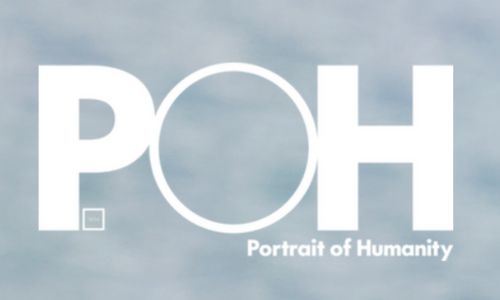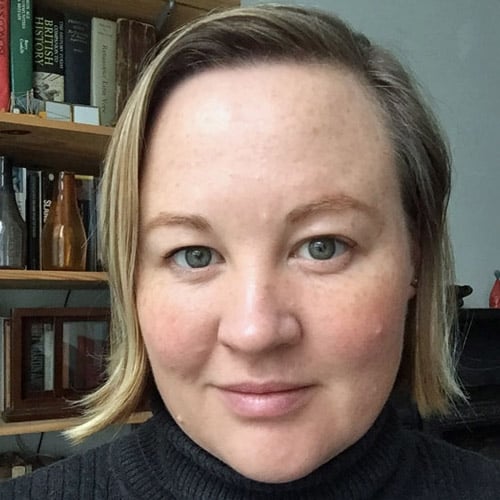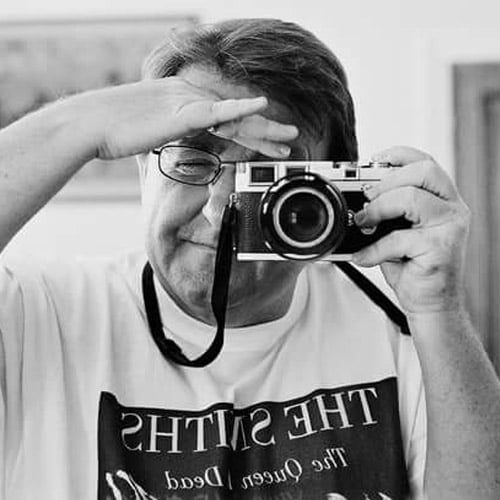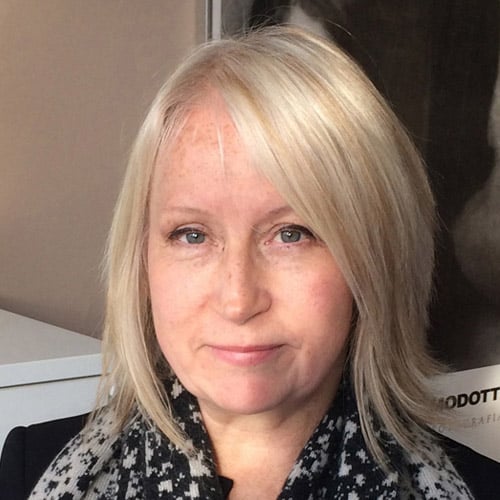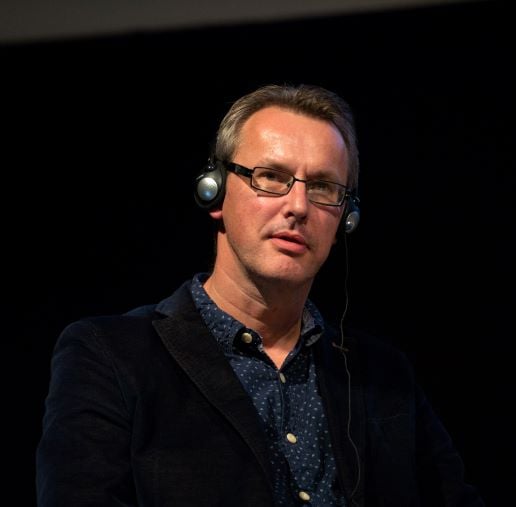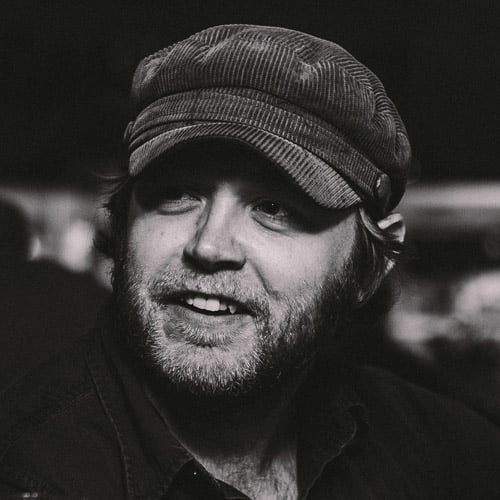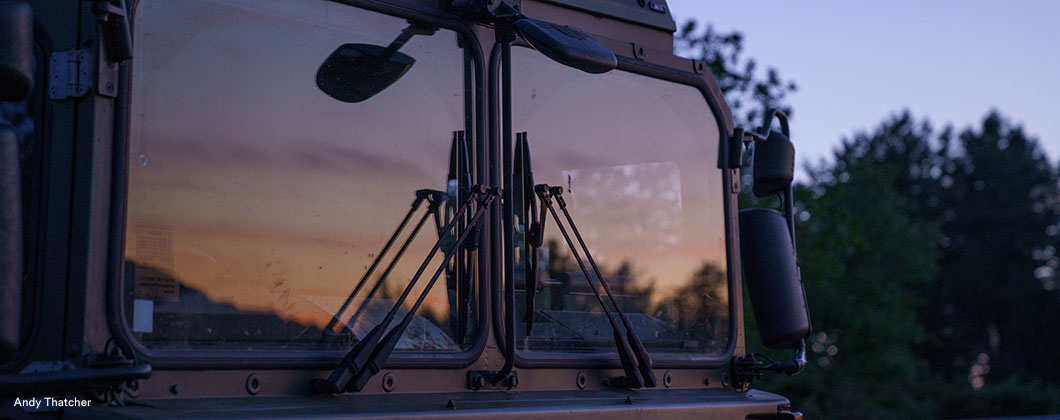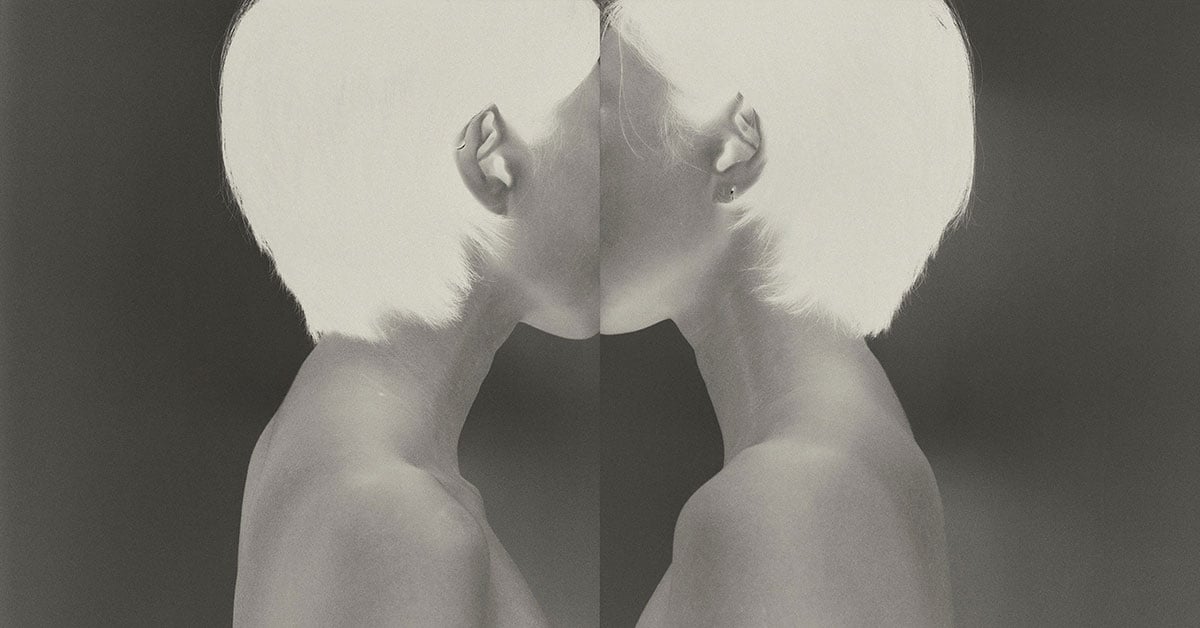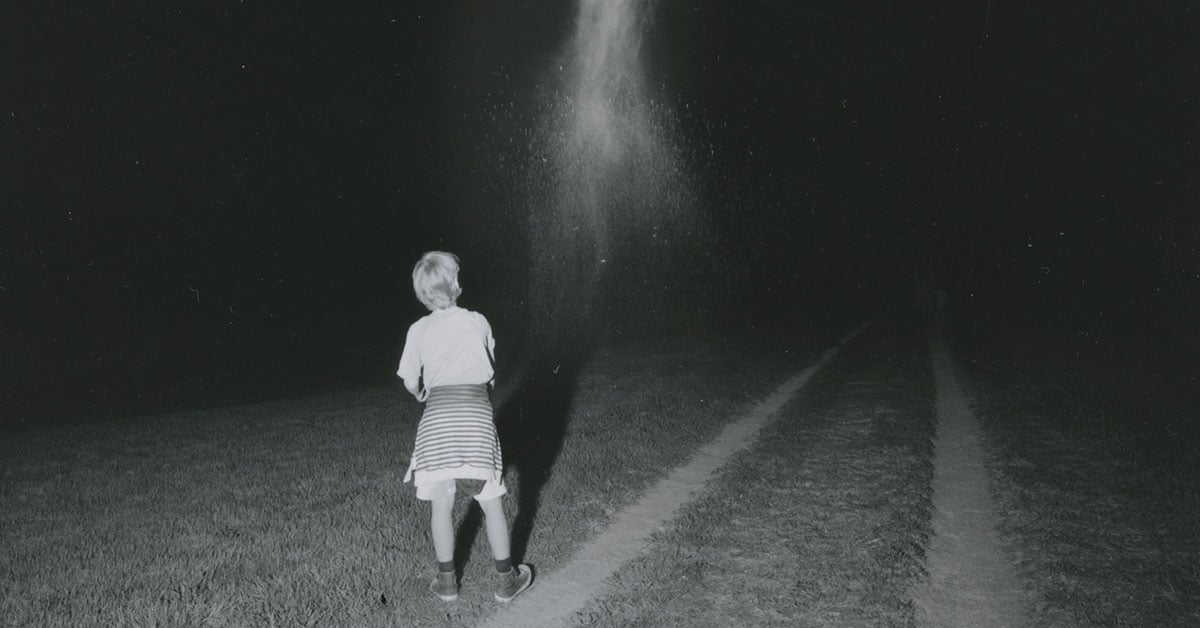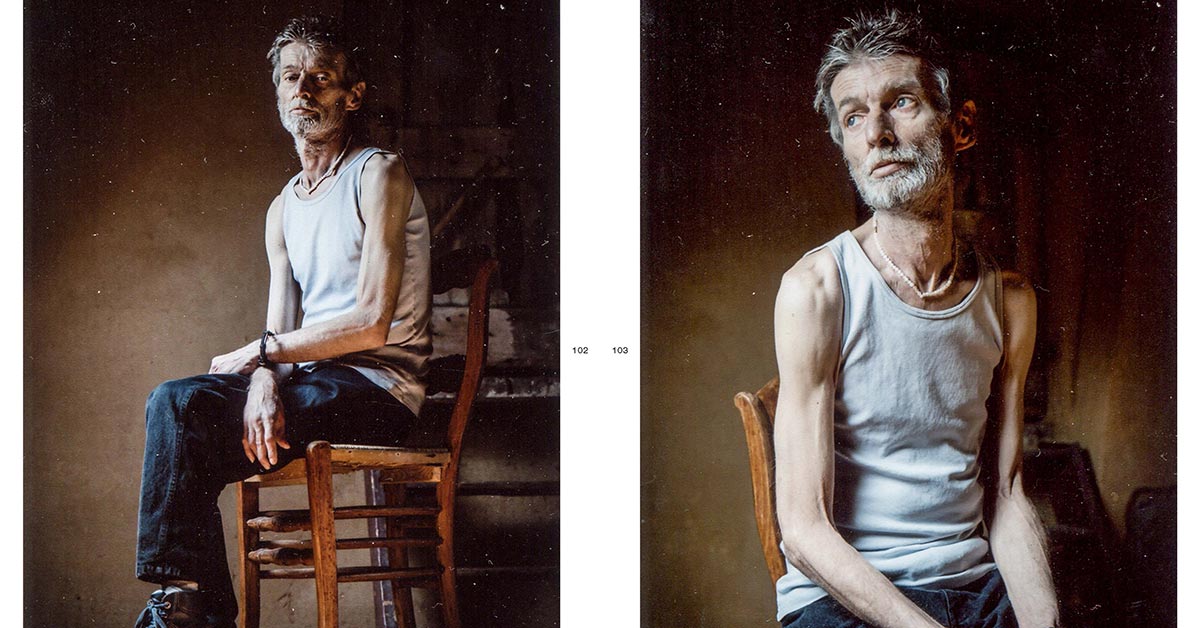Key details
Award title
MA Photography (also available as PGDip)
Awarding body
Falmouth University
Level
7
Duration
MA 2 years; PGDip 15 months
Mode of study
Online, part-time
Total MA fee
£12,150
Start dates
January and May
Next welcome week
20 May 2024
Next start date
28 May 2024
Application deadline
7 May 2024
Gain a fresh outlook on your work
The photography industry is complex and competitive. To succeed, you need a course that pushes you further than simply mastering your technical skills, deepening your photographic knowledge and ability to innovate.
With Falmouth Flexible you’ll draw on other disciplines, build international connections, and explore wider contexts to engage meaningfully with this technologically and socially evolving medium. Through a range of activities including live briefs set by real clients, you’ll develop the professional skillset to make your mark in the industry, ready to join our rich legacy of accomplished and award-winning graduates.
You will:
- Immediately apply fresh insight to your work and embrace multidisciplined approaches
- Enhance your learning experience at our optional in-person face-to-face events
- Become more inquisitive, innovative, and outward-looking
- Confidently collaborate with other practitioners on a global scale
- Embrace and uphold ethical and sustainable photography practices
As well as an internationally recognised postgraduate qualification, as a successful graduate you’ll leave the course with a body of work strong enough to take you to the next stage in your career and sustain your practice beyond.
Why study with Falmouth?
Find your creative voice
This MA is designed to enhance your artistic, critical, and professional skills, regardless of where you are in your career. Live briefs with real clients will equip you with the skillset, experience, and connections to thrive in this demanding and competitive industry.
You’ll be challenged to interrogate your practice and develop your creative voice. By experimenting with new materials and techniques, you’ll push your technical abilities and creative boundaries to excel as a specialist.
As well as joining our own collective of artistic minds, designers, and makers, you’ll expand your creative circle even further, becoming part of a global network of practitioners and finding your place within the wider photography community.
"I'm very grateful for the diverse backgrounds of my tutors and the references mentioned in the modules, this has opened my eyes to wider range of practices, approaches and methodologies in photography."
Rehab Eldalil, MA Photography
“As a working photographer it's difficult to dedicate a year or two years to doing a course so I needed to do something that was flexible, that I could do around my own work. The flexible MA at Falmouth was the perfect choice."
Anthony Prothero, MA Photography
Be inspired by our successful graduates
Course details
Please note the module orders are subject to change.
MA
You will need to complete four 30-credit modules and one 60-credit project (180 credits in total). All modules on the course are compulsory and must be passed in order to complete the award.
PGDip
You will need to complete four 30-credit modules (120 credits in total). All modules on the course are compulsory and must be passed in order to complete the award. A dissertation (major project) is not required.
Module one
Positions and Practice (30 credits)
This module enables you to locate your practice within the broad contexts of professional contemporary photography.
You will consider the importance of research as a fundamental aspect of contemporary photography in both academic and industry contexts, and critically reflect on core themes in contemporary visual culture.
Through discursive activities with faculty staff and peers, as well as self-directed research and personal reflection, you will analyse your practice in relation to specific themes, and articulate your practical and conceptual motivations and intentions as an image-maker.
Module two
Informing Contexts (30 credits)
'Informing Contexts' aims to increase your understanding of how contemporary practice is enriched through critical and theoretical contextualisation, helping you develop an informed and sophisticated photographic practice.
The module will introduce you to a number of themes and debates that are fundamental to the study of the image, such as debates around looking and subjectivity.
You will also consider your own practice in relation to historical, philosophical, and ethical perspectives around photography and visual culture.
Module three
Sustainable Strategies (30 credits)
This module considers the different contexts in which the photography is published, and how its form influences how it is received and understood by audiences.
You will explore the many creative strategies involved in the production, resolution, and publication of photographic work, and consider the possibility of interdisciplinary approaches in the making and presentation of your own creative output.
As you study, you’ll also devise strategies and workflows that are conscious of material consumption and work towards professional, and ecological and environmental sustainability.
You’ll be encouraged to experiment with new materials, processes, and creative strategies as appropriate to your specialism.
Module four
Collaboration and Professional Locations (30 credits)
‘Collaboration and Professional Locations’ strives to increase your understanding and appreciation of the roles, relationships, and responsibilities that can play a major part in progressing and sustaining your professional practice.
As part of this, you will be encouraged to undertake commissions and work placements during this module, and to devise or engage in photography and visual arts initiatives relevant to your work.
You’ll also have the opportunity to collaborate on a live brief with a small group of peers. These briefs will be set by clients and allow you to gain experience with real world, industry challenges.
Final major project (MA only)
Final Major Project (MA only) (60 credits)
This module provides you with the chance to produce a critically and professionally informed research project and deliver it to a public audience.
Initially, you will submit a proposal outlining a scheme of work and the critical contexts surrounding your project. You’ll then work continuously on the module over the course of two study blocks.
The project will be your opportunity to demonstrate increasing autonomy in respect of your research capabilities, alongside support from your supervisor.
You will also continue to benefit from the programme’s ongoing series of guest lectures by leading contemporary practitioners and industry experts.
Want to learn more about any of the modules?
Get in touch with our expert Course Adviser team. They’ll be able to answer all your questions about the programme, our application process, funding options, and more.
Positions and Practice (30 credits)
This module enables you to locate your practice within the broad contexts of professional contemporary photography.
You will consider the importance of research as a fundamental aspect of contemporary photography in both academic and industry contexts, and critically reflect on core themes in contemporary visual culture.
Through discursive activities with faculty staff and peers, as well as self-directed research and personal reflection, you will analyse your practice in relation to specific themes, and articulate your practical and conceptual motivations and intentions as an image-maker.
Informing Contexts (30 credits)
'Informing Contexts' aims to increase your understanding of how contemporary practice is enriched through critical and theoretical contextualisation, helping you develop an informed and sophisticated photographic practice.
The module will introduce you to a number of themes and debates that are fundamental to the study of the image, such as debates around looking and subjectivity.
You will also consider your own practice in relation to historical, philosophical, and ethical perspectives around photography and visual culture.
Sustainable Strategies (30 credits)
This module considers the different contexts in which the photography is published, and how its form influences how it is received and understood by audiences.
You will explore the many creative strategies involved in the production, resolution, and publication of photographic work, and consider the possibility of interdisciplinary approaches in the making and presentation of your own creative output.
As you study, you’ll also devise strategies and workflows that are conscious of material consumption and work towards professional, and ecological and environmental sustainability.
You’ll be encouraged to experiment with new materials, processes, and creative strategies as appropriate to your specialism.
Collaboration and Professional Locations (30 credits)
‘Collaboration and Professional Locations’ strives to increase your understanding and appreciation of the roles, relationships, and responsibilities that can play a major part in progressing and sustaining your professional practice.
As part of this, you will be encouraged to undertake commissions and work placements during this module, and to devise or engage in photography and visual arts initiatives relevant to your work.
You’ll also have the opportunity to collaborate on a live brief with a small group of peers. These briefs will be set by clients and allow you to gain experience with real world, industry challenges.
Final Major Project (MA only) (60 credits)
This module provides you with the chance to produce a critically and professionally informed research project and deliver it to a public audience.
Initially, you will submit a proposal outlining a scheme of work and the critical contexts surrounding your project. You’ll then work continuously on the module over the course of two study blocks.
The project will be your opportunity to demonstrate increasing autonomy in respect of your research capabilities, alongside support from your supervisor.
You will also continue to benefit from the programme’s ongoing series of guest lectures by leading contemporary practitioners and industry experts.
Want to learn more about any of the modules?
Get in touch with our expert Course Adviser team. They’ll be able to answer all your questions about the programme, our application process, funding options, and more.
Not ready for a masters yet?
If you don’t know if you’re fully equipped to make the most of our rigorous masters-level study, we can help. Get in touch with one of our course advisors to see whether joining our BA(Hons) Photography (Top-Up) course prior to progressing to the MA would be more beneficial.
Studying on our Top-Up will allow us to work with you to ensure you have the best chance of achieving a 2:1, which in turn will lead to a guaranteed offer and place on the MA. Please contact us for more information on +44(0) 1326 332 125.
Entry requirements
An honours degree or Level 6 equivalent qualification.
A digital portfolio of your current photographic practice. The portfolio should indicate both your technical aptitude and the quality and sophistication of your practice.
You shouldn’t attempt to encompass a range of styles and genres of photography, but rather try to give the admissions team a sense of your practice specialisms and your interests as a practitioner.
You should title or briefly caption each image in your portfolio, explaining - if necessary - how the image is indicative of your practice and why you have selected it.
-
IELTS - minimum overall score of IELTS 6.5 with at least 6.0 in Reading, Writing, Speaking and Listening
-
TOEFL iBT (online test) - minimum of 88 overall and at least 21 in all 4 components
-
LanguageCert (online test) - a High Pass from the ESOL B2 Communicator test in reading, writing, speaking and listening (2 parts)
We accept a number of additional English language qualifications as well.
Candidates without a degree or formal qualification are also encouraged to apply. If you have prior learning or experience with this subject, you may even be able to apply for Accreditation of Prior Learning (APL). You can learn more about this via our APL guide.
How you'll learn
Access course content anywhere
With Falmouth Flexible, you access your course content, interactions with other students and tutors, and learning resources through Canvas, our easy-to-use online platform.
You can access the course wherever you are in the world, and you can watch, pause, and rewind lectures whenever you want.
Engaging learning activities will help you apply theory to practice. They could include:
-
Concise online presentations to introduce key concepts
-
Small group and class discussions and crits to facilitate interaction and dialogue
-
Online critiques to test assumptions, ideas and to receive feedback from peers and tutors
-
Individual and group tutorials throughout the course
-
Independent study
-
Self-evaluation and peer feedback.
All assessments are taken and submitted online.
Assessment methods for the masters degree in photography can typically include:
-
Coursework assessment with no formal examinations
-
Oral presentations
-
Collaborations on live, client briefs
-
Projects, individual reports and public presentations
As one of our students, you’ll have access to a range of services designed to support your studies and make your time with us as enjoyable as possible.
-
Falmouth’s comprehensive online library of books, journals, and resources
-
A Student Advisor team to answer non-academic queries
-
Online software tutorials via LinkedIn Learning
-
The Students' Union community
-
Career advice, CV creation, practice interviews, and more via our careers platform
As a Falmouth Flexible MA Photography student, you'll also be entitled to a free student membership of the Association of Photographers.
Hear from a student in this Q&A session
MA student Sam Buchanan discusses her final major project and what inspiredit.
- And it looked at what was focused on exploring our circadian rhythms. Specifically sleep. And how those are interrupted by the 24/7 society that most of us live in. It evolved from an earlier project. Not the immediate one preceding the FMP but actually one prior to that, which explored my own experience of burnout.
And I recognize that my working life was not resulting in me being either happy or particularly physically healthy. So I was able to make some changes. And I wanted to go back and look at that. I really enjoyed looking at the science of it and looking for ways to explore science using imagery. It was also going to be a much bigger project.
It was looking at levels of physical activity. It was looking at the food we eat. All those things that are 24/7 society, I think I use the phrase insidiously promote. But sleep stood out as probably one that was having a bit of a Renaissance so it was quite popular and recognized they couldn't cover everything. So I focused on sleep.
And the images on the slide here, is one of the images from that project. And this woman is a really good example of how my photography has changed. Because when I started the Ma I was probably drawn more towards black and white photography. This project was entirely in colour, which for my fellow peers was a big step for me. It was also entirely abstract.
And that for me during FMP was something I did struggle a little bit with. Would my abstract images be understood by other people?
And they were produced using decayed Polaroids. So I took a series of Polaroids over a number of weeks and decayed them in commonly used sedatives and stimulants. So things like Red Bull, coffee, sleeping tablets, night nurse the things that are commonly used and legal.
And the images some were really successful. So the one that's shown on this slide I think is one of the really successful ones. Others just nothing happened at all.
And others worked but I personally didn't like them. But I still included them in the project, because it was well included 24 to represent the 24 hours in a day. So for me the FMP was a real, it was a bit of a journey in terms of moving away from the security and safety of digital images which was much more my comfort zone.
Fees and funding
Fees
Total course fee
£12,150 (including £350 acceptance fee)
Payment options
- One-off payment
- Six equal instalments spread over a two-year period
Payment methods
Payments can be made online or by phone, using a credit or debit card, or by bank transfer.
Please visit our fees and funding page for more information or call us on +44(0) 1326 332 125 to speak to a Course Advisor.
Typical course costs
All students on the course are expected to have access to their own photographic equipment.
What this will consist of will vary according to your practice and preferred ways of working. Typically, this will mean a good quality DSLR plus the lenses you require.
You will also need to purchase the Adobe Creative Cloud and have a laptop/desktop capable of running these applications.
For further advice, please call us on +44(0) 1326 332 125 to speak to a Course Advisor or check out more ways to get in touch.
Funding options
Application offers
We offer a range of bursaries, early application offers, and alumni discounts.
Loans
You may be eligible for funding from the UK Government.
Please visit our Funding options page for more information or call us on +44(0) 1326 332 125 to speak to a course advisor.
Total course fee
£12,150 (including £350 acceptance fee)
Payment options
- One-off payment
- Six equal instalments spread over a two-year period
Payment methods
Payments can be made online or by phone, using a credit or debit card, or by bank transfer.
Please visit our fees and funding page for more information or call us on +44(0) 1326 332 125 to speak to a Course Advisor.
All students on the course are expected to have access to their own photographic equipment.
What this will consist of will vary according to your practice and preferred ways of working. Typically, this will mean a good quality DSLR plus the lenses you require.
You will also need to purchase the Adobe Creative Cloud and have a laptop/desktop capable of running these applications.
For further advice, please call us on +44(0) 1326 332 125 to speak to a Course Advisor or check out more ways to get in touch.
Application offers
We offer a range of bursaries, early application offers, and alumni discounts.
Loans
You may be eligible for funding from the UK Government.
Please visit our Funding options page for more information or call us on +44(0) 1326 332 125 to speak to a course advisor.
Borderless perspectives: photography face-to-face events
At Falmouth we are continually rethinking online study to bring you the richest learning experience.
We understand the importance of learning with peers, which is why up to twice a year*, you’ll have the opportunity to meet your classmates and tutors in person at our optional face-to-face events. From international photo festivals to hands-on workshops, they’re a chance to fully immerse yourself in the subject you love and share experiences with like-minded creatives.
Professional opportunities, mentorships, and lasting friendships can blossom from our face-to-face events. You’ll gain global perspectives, valuable feedback, and deepen your knowledge.
*Please note that given the variability in participant numbers and the specific nature of planned events, it may not always be possible to organise them for every course every year.
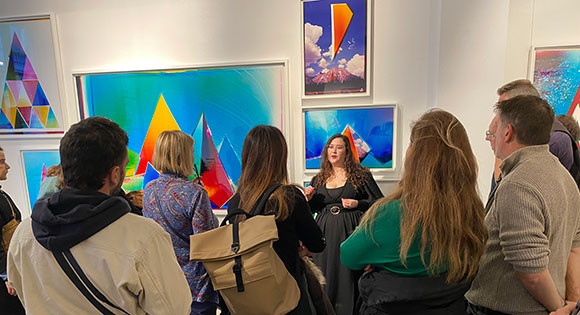
"The face-to-face events really help you to firstly meet the other people on your course, meet the academic team, meet support staff, but also appreciate the wealth of photography around the world."
Jo Sutherst, MA Photography
Careers
Our graduates go on to achieve great things: from successful careers in travel, fashion, and editorial photography to becoming award-winning documentary photographers and internationally celebrated portrait photographers.
Talent and technical ability are vital, but we’ll also prepare you for the realities of life in the industry, encouraging you go out and gain first-hand experience with commissions, work placements, and a live brief project set by a real client. Past clients have included organisations such as Oxfam, the Royal Photographic Society, and the Wellcome Photography Prize. You’ll develop the professional and transferrable skills – from pitching to collaborating – needed to thrive in many fields of the creative industries.
In addition to the guidance offered by our tutors, you can also access RealWORKS, our careers and employability service throughout your studies, and for up to 5 years following graduation.
Our expert team will help you identify potential opportunities in the UK or internationally, prepare for job interviews, advise you on starting up your own business, and more.
Find out more about the careers available to you as an MA Photography graduate:
Student work
Want to see what our current students create?
The Falmouth Flexible Graduate Show took place in London - meet some of the participants and see their incredible photography practice in our video.
MA Landings exhibition 2022
Discover how Photography graduates showcased their Final Major Projects and see work designed and curated by current students in the 2022 Landings exhibition.
Source Graduate Photography 2023
See the diverse and innovative work produced by our graduates in this online showcase.
Graduate awards and nominations
Falmouth Flexible Photography on Instagram
See what current and former MA Photography students are up to in our latest @falmouthflexiblephoto Instagram posts:
Teaching team
Designed with employer-focused learning at the core, our MA Photography team work with global organisations, staff, and alumni to provide you with the breadth of experience and networks needed to accelerate your career. The team is based around the world and come from a range of backgrounds in professional photography.
We also invite guest lecturers to enhance what you're learning and bring the subject to life.
Here's a small selection of our previous speakers:
-
Geoff Dyer (writer)
-
Kalpesh Lathigra (photographer)
-
Mariama Attah (curator)
-
Julia Fullerton-Batten (photographer)
-
Silvia Rosi (photographer)
-
Lua Ribeira (photographer)
-
Amak Mahmoodian (photographer)
-
Anastasia Samoylova (photographer)
-
Charlotte Cotton (curator)
How to apply
Application steps
Step 1: Submit an online application form
Step 2: Submit a copy of your first degree certificate or Level 6 equivalent qualification and your IELTS certificate if English is not your first language
Step 3: Submit a digital portfolio of your current photographic practice. The portfolio should indicate both your technical aptitude and the quality and sophistication of your practice. You shouldn’t attempt to encompass a range of styles and genres of photography, but rather try to give the admissions team a sense of your practice specialisms and your interests as a practitioner. You should title or briefly caption each image in your portfolio, explaining - if necessary - how the image is indicative of your practice and why you have selected it.
Late applications may be considered if places are available. Find out more about applying:
Take your first step to success.
Photography resources
Short photobooks: Why they are flourishing
In this month’s blog post we look at more modest photobooks - books that are modest in size, expense, or the time the photographers took to produce the work.
Wouter Van de Voorde: Living on the Edge
In this post, we look at a book that focuses on those in-between places, the fringes where town becomes country. In this example that country is Australia, and the photographer is Wouter Van de Voorde. His book, Nucleo, tells the story of the ...
Birds of a Feather: Collaboration made simple
In this month’s blog post we continue to look at some of the key elements embedded in collaboration through the book Birds of a Feather.
.webp)


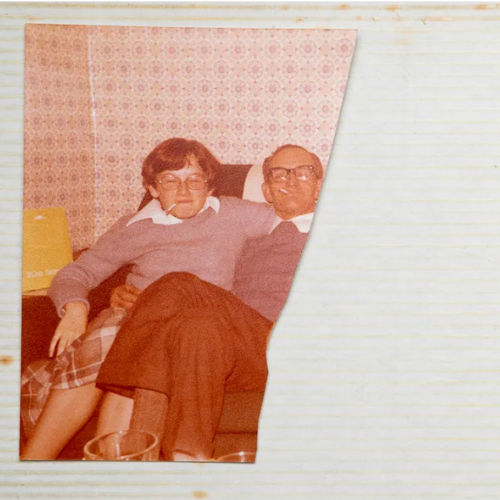
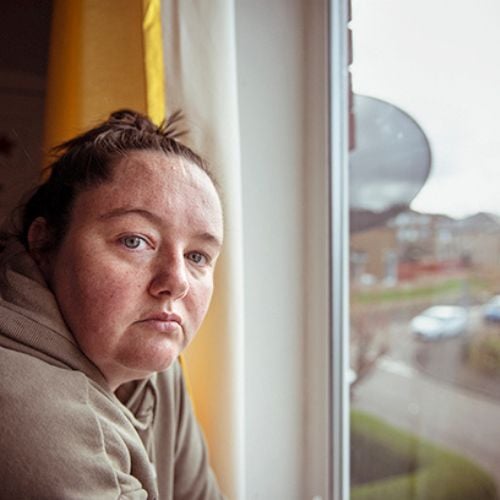

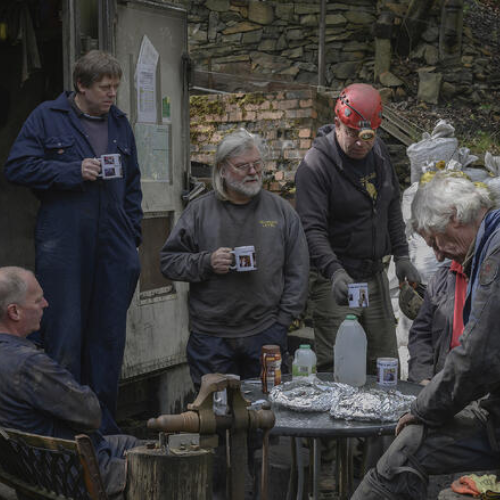

.jpg?width=500&height=499&name=Justin_Carey_Photography_All%20Hurt%20(for%20Falmouth%20-%20500x500px).jpg)
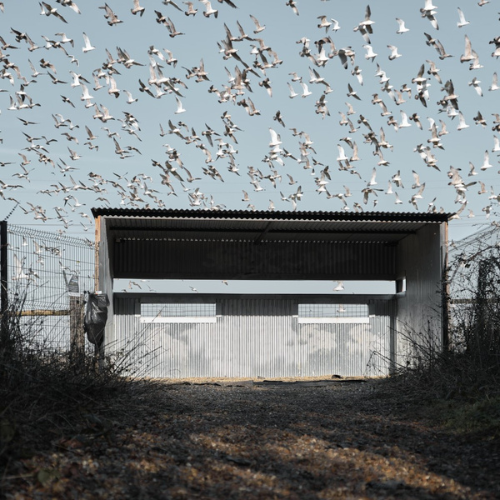
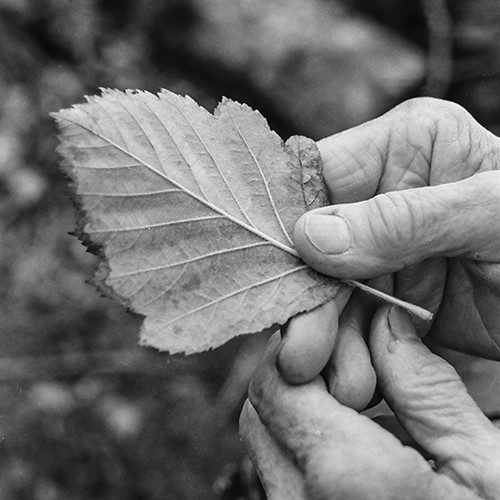

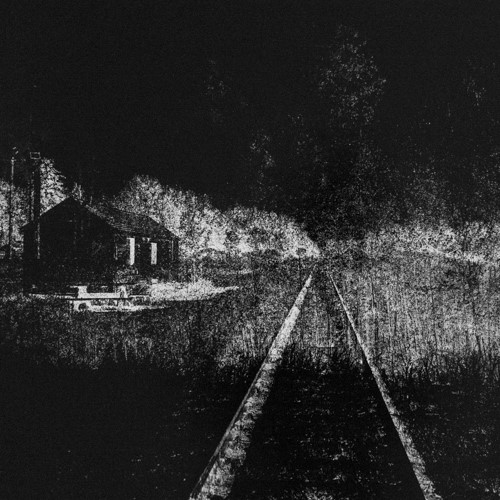

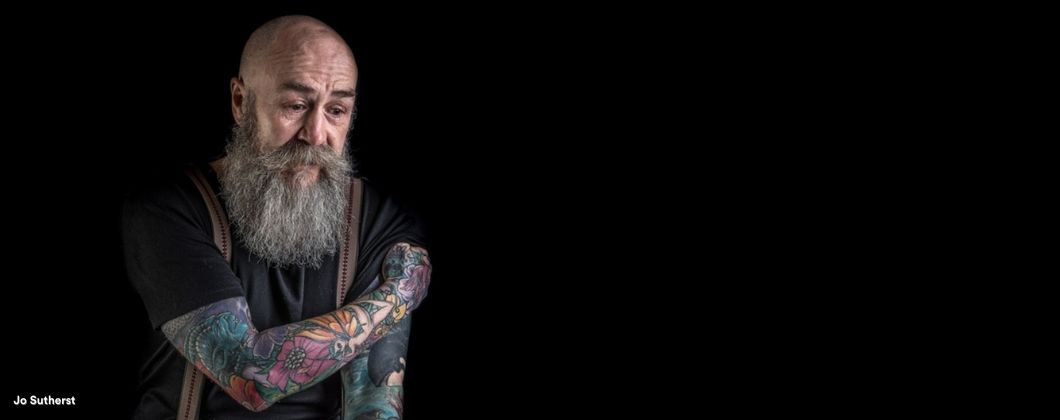



.png?width=500&height=300&name=Source%20photography%20(500%20%C3%97%20300%20px).png)
.png?width=500&height=300&name=WPP%20logo%20(500%20%C3%97%20300%20px).png)
.png?width=500&height=300&name=AOP%20logo%20(500%20%C3%97%20300%20px).png)
